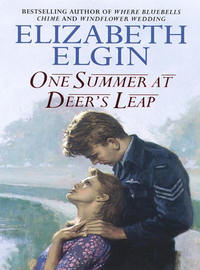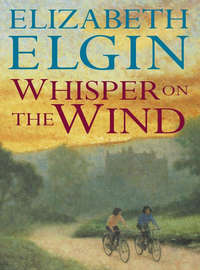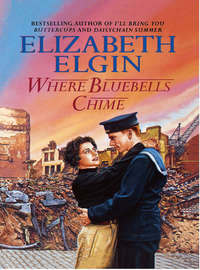
Полная версия
A Scent of Lavender
‘Nun Ainsty? We mostly call it Ainsty. But I’ll tell you how it got its name as we do our tour of inspection. It won’t take long, that’s for sure. There are only ten houses – eleven if you count the manor. But the manor’s been empty for years and years. So, if you’re ready …?’
They walked around the village, past Dickon’s Wood and the White Hart public house and the Saddlery. And Throstle Cottage.
‘Throstle?’ Ness wrinkled her nose.
‘It’s the old name for a song thrush. There are a lot of them in the wood. They’ll probably wake you early with their singing.’
‘Don’t think I’ve ever seen a thrush – not even in the park. Sparrows, mostly, and pigeons down at the Pierhead.’
‘Pierhead? I thought you were from Liverpool.’
‘S’right. Good old Liverpewl. I love it to bits, but I couldn’t wait to get out of the dump. There’s a big munitions factory being built outside Liverpewl and people reckon there’ll be work for thousands, when it’s done. But I decided on the Land Army. Always wondered what life was like in the country.’
‘And you’ll soon know. You’ll be living in the country for the duration.’
‘I know. Scares me a bit. I didn’t know there was so much space, so much sky, till I seen this place. Sky everywhere, isn’t there?’
‘Everywhere, as you say. But often there are bombers in it – ours, of course. There are quite a few bomber stations around here. Sometimes the planes fly very low, but you’ll get used to it. But over there – look! You can see Glebe Farm, with the ruins behind it.’
‘Ruins of what? Cromwell at it around here, was he?’
‘Actually it was Henry the Eighth who was responsible for the priory. Fell out with the Pope, and turned against the Church; said it was getting too rich and above itself. It was he who turned the nuns out of the priory, sent his hangers-on to take off the roof. Then they looted everything of value and left the place to decay. Pity, really, because it was run by a nursing order. They took in lepers. It was the only building here, apart from the chapel and the three almshouses. It had to be well away from habitation.’
‘Lepers? Aren’t they the poor sods who had to ring a bell and shout “Unclean” so people would know to get out of their way?’
‘The same. They made their way to the priory to die, I suppose. If you look beyond the ruins to your right, you can see the back of the manor.’
‘Pity,’ Ness sighed, ‘about the ruins and the manor all empty. And a pity about them poor lepers, an’ all.’
‘Suppose it is. See the little church over there?’ Lorna pointed to the small, stone chapel, surrounded by green grass. It had no stained glass windows, no belltower. ‘St Philippa’s. Only tiny. The nuns built it as a chapel for the lepers to pray in. Henry’s wreckers left it alone, thank goodness. The lepers were buried around it when they died. And people who died of the plague or cholera were brought here for burial from other parts, too, because it was so out of the way. No gravestones for them, but at least they’ll never be disturbed. Did you know, Ness, that even now, no one is keen to disturb a cholera grave? They say it lives on, in the soil, though I very much doubt it.’
‘There was a cholera epidemic in Liverpool about a hundred years ago. I think a lot of the dead were thrown into an old wooden ship, then it was towed down the Mersey and out to sea, and blown up. Reckon them poor people would’ve rather been here.’
‘Well, if you’re interested, we have a service at St Philippa’s every other week.’
‘And you aren’t worried about catching anything?’ Ness frowned.
‘Not at all. It’s a dear little chapel. Are you C of E?’
‘Me Mam is. I’m nuthin’, though I suppose if I had to stand up and be counted, I’m Church of England. In Liverpewl we’re called Protties – well, that’s what the Cathlicks call us. A lot of them around Liverpewl. Came over from Ireland, because of the famine. Suppose it’s what makes Liverpewl what it is – the people, I mean. I’ll miss the people, but it’ll be smashing, bein’ in the country, hearing birds singing.’
‘It’ll make a change. Walk past quickly! There’s Nance Ellery in her garden and I don’t want to see her, if you don’t mind. She’s all right, but she likes to boss people around so don’t say you haven’t been warned. Beech Tree House, her place is called, because of the three beeches in front of it.’ Lorna slowed her step once more. ‘And next to Beech Tree is Larkspur Cottage, where the district nurse lives. Then right at the end, near the lane, are the almshouses – they survived the wreckers and vandals too. Pillar box to your right, and that’s about it. You’ve toured Nun Ainsty, Ness, in fifteen minutes flat, walking slowly!’
‘And it’s beautiful. All trees and flowers and – and –’
‘Sky?’ Lorna grinned.
‘Yes, and birds. But you never told me about Dickon – him the wood was called after.’
‘We-e-ll, Dickon was an ostler. Looked after Sir Francis Ainsty’s horses in York. Sir Francis had a daughter Ursula, who became a nun.’
‘At the priory here?’
‘Yes, though reluctantly. Ursula, an only child and heiress, couldn’t get a husband. She was considered ugly, you see. And since no man wanted an unmarried daughter on his hands in those days, Francis Ainsty sent Ursula to the nuns, paid them a good sum of money to take her, and made his nephew his heir.’
‘The miserable old devil! Surely Ursula wasn’t that ugly? I mean, wouldn’t her father’s money have made her just a little bit attractive?’
‘Seems not. Anyway, legend has it that no one offered for her, so her fate was sealed, as they say.’
‘Was she a hunchback, or somethin’?’
‘No. Far worse than that in the eyes of the people of Tudor England. Ursula had a harelip and a cleft palate too, I think, because she was supposed not to be able to speak properly.’
‘But things like that don’t matter these days. There’s an operation for it, isn’t there?’
‘Yes. As you say, it can be fixed nowadays. But four hundred years ago, people were very superstitious, and anyone born with a harelip was avoided like the plague, because they thought that if a hare ran across the path of a pregnant woman, it caused her baby to have a hare’s lip. Witchcraft.’
‘What a load of old rubbish!’
‘Ah, but was it, Ness? In those days, people believed in witches and a hare – a black cat, too – were thought to be familiars of a witch.’
‘Sorry, you’ve lost me.’
‘A familiar was another form a witch could take when she was up to no good, so a pregnant woman, startled by a hare, paid the price for it.’
‘Or her poor little baby did! But what about Dickon?’
‘Dickon was ordered by Sir Francis to deliver Ursula to the convent, the two of them riding horses. Ursula wept all the way there and Dickon was so upset that he proposed to her – or so the story goes.’
‘But she wouldn’t have him, him bein’ a peasant, sort of, and her bein’ high born?’
‘Wrong! Ursula accepted. Dickon had always been fond of his master’s daughter and protective towards her and couldn’t bear to see her locked away. And he wasn’t marrying her for her money because she’d been disinherited. You’ve got to admire Dickon.’ Lorna pushed open the back garden gate. ‘I feel like a cup of tea. Will you put the kettle on, Ness, and I’ll see if there’s been a call for me.’
‘From your husband? Lucky you’ve got a phone in the house.’ Few people had their own telephone. There had not been one in Ness’s Liverpool home. Very middle class, telephones were. She set the kettle to boil and had laid a tray by the time Lorna returned.
‘No joy. Mrs Benson from the telephone exchange at Meltonby said she hadn’t had any trunk calls from down south all day. Says her switchboard has gone over all peculiar since Dunkirk. Anyway, I wasn’t really expecting a call. More chance of a letter tomorrow, or the next day.’
‘Sorry, Lorna. Must be rotten when your feller goes off to the Army.’
‘Rotten. But I haven’t really taken it in. It feels like I’m in a daze, kind of. I – I haven’t cried, Ness. Not one tear.’
‘No, but you will when it hits you, queen. But if you don’t feel like tellin’ me about Dickon and Ursula, it’s all right.’
‘Oh, but I do. Having someone to talk to helps a lot, believe me. Where were we?’
‘We’d got to the bit where Dickon asked Ursula to marry him, even though she didn’t have a penny to her name.’
‘And Ursula accepted him, but I suppose they couldn’t just gallop off into oblivion. After all, Sir Francis would expect his servant back in York – plus two horses – so they decided Ursula should wait until the next saint’s day to run away. Sir Francis always gave his servants time off to go to church on saints’ days, so that was when it would be. Dickon would come and wait for Ursula who would slip away when no one was looking.’
‘And he’d wait for her in the wood – bet I’m right!’
‘Yes, but it wasn’t as easy as they’d hoped. Three saints’ days came and went, but getting out of the priory wasn’t as easy as Ursula had expected. In the end, she became desperate and tried to climb out of the window of her cell. But she fell and hurt herself badly. It didn’t stop her, though, from dragging herself to the wood. She died in Dickon’s arms.’
‘Gawd. And what did Dickon do then?’
‘No one seems to know. He just faded out of the picture, so to speak.’
‘So why is it called Dickon’s Wood?’
‘We-e-ll – and I tell you this tongue in cheek, Ness – Ursula is supposed to haunt the wood, waiting for Dickon to come for her!’
‘Ooooh! You haven’t seen her?’
‘To be honest, no one has seen her.’
‘But there must be some truth in it, or why did they call this village Nun Ainsty after her? Like keeping her name alive, innit?’
‘I rather think the people who came here all those years ago kept her name alive to make sure not too many more joined them. It wasn’t long after Ursula died that the nuns were turned out of the priory, and once the king had taken all he wanted, a blind eye was turned to the looting that went on. With the roof gone, the building started to decay. All that was any use was a pile of stones and quite a lot of land.’
‘And the people who came here weren’t afraid of germs an’ things the lepers had left behind?’
‘Seems not. Would you be, when there was priory land for the grabbing and stone to build your house with? Of course, the building material soon ran out. The manor took the lion’s share, and then Glebe Farm was built. Very soon, all that was left was what you see now – archways and columns and some of the cloisters.’
‘But weren’t people worried, pulling down a holy place? Didn’t they fear punishment from God?’
‘Why should they? Henry had made himself head of the English church. If the king could help himself, then surely so could anyone else.’
‘You reckon?’ Ness was clearly impressed. ‘You live nearest to the wood. Can you say, hand on heart, that the nun has never been seen there?’
‘You mean the nun’s ghost? Well all I can say, hand on heart, is that if she has I haven’t heard about it. Mind, Grandpa told me people said they’d seen her ages ago, on the odd occasion, though maybe they’d had a drop too much at the White Hart. But I wouldn’t lose too much sleep over Dickon and Ursula, if I were you.’
‘But haven’t you thought,’ Ness was reluctant to let the matter drop, ‘that every house in this village is built with stone from the priory, so who’s to say that every house isn’t haunted by Ursula? Or Dickon?’
‘Because they aren’t. It’s all a lot of nonsense. I’m sorry I told you now. You aren’t going to keep on and on about it, Ness?’
‘N-no. But I’ve got to admit I’d like to know more about those two, ‘cause there’s no smoke without fire, don’t they say? And had you thought, maybe it’s only certain people the nun appears to. I mean, I don’t suppose everybody can see ghosts.’
‘No one in this village can, that’s for sure. Anyhow, I think I’ll go and settle down. I want to write to William so there’ll be a letter ready to post as soon as I have an address.’
‘And I still have unpacking to do,’ said Ness reluctantly. ‘By the way, thanks for takin’ me in. This is a lovely house and I don’t mind it bein’ so near to Dickon’s Wood.’
She said it teasingly and with a smile, so that Lorna smiled back, silently vowing to say not one more word on the subject; wishing she had left Ursula Ainsty where she rightly belonged. Very firmly in the past!
Ness closed her eyes and breathed deeply on air so clean and fresh you wouldn’t believe it. Around her, all was green. Every front garden was flower-filled and roses climbed the creamy stones of age-old houses. This was an unbelievable place; so tucked away – smug, almost, in its seclusion at the end of a lane. People back home would be amazed to see so much space belonging to so few people. But one thing was certain. It wouldn’t take long to get to know the entire village. She had already passed the almshouses and Larkspur Cottage where the nurse lived and now, to her left, was Beech Tree House where someone called Nance lived; someone, Ness suspected, who could be a bit of a martinet, given half a chance.
She stood a while outside the tiny chapel, wondering about the sleeping dead around it and how the lepers had fared when there were no nuns to care for them. Probably they were doing a bit of haunting, an’ all, ringing their pathetic bells still.
Then she stopped her dawdling and daydreaming. There was a war on and Agnes Nightingale from Liverpool was about to become a part of it, a land girl for the duration of hostilities. At seven on the dot she was supposed to join her war, and it was almost that now.
She began to run, turning the corner to see the farmhouse ahead of her, and to her right the stark ruins, already throwing long, strange shadows in the early morning sun. A dog barked and she hoped it was friendly.
‘Hey! You!’
‘You talkin’ to me?’ she demanded of the young man who was closing a field gate behind him. ‘Me name’s Miss Nightingale!’
‘And mine’s Rowland Wintersgill and you’re late. Milking’s over. Still, suppose you can muck out. Better go to the cow shed – make yourself known to my father.’
‘Yes sir! And can you tell me, if you don’t mind, if there are any more at home like you, ’cause if there are I’m not stopping!’
Head high, she followed his pointing finger, then carefully crossed the yard, avoiding pats of dung.
The cow shed smelled warmly of cows and milk. She supposed she would get used to it. And sweeping it.
‘Hullo, there. Our land girl, is it?’ A man, leaning on a brush, smiled and held out a hand. ‘I’m Bob Wintersgill. I’ll take you to meet Kate. Have you had breakfast, by the way?’
‘I – well, yes. Before I came.’ A piece of bread and a smear of jam because she had been unwilling to eat Lorna’s rations.
‘Well, we usually eat after we’ve got the cows milked. You’ll be welcome to a bite.’
‘Sure you can spare it – rationing, I mean …?’
‘I think it’ll run to a bacon sandwich and a mug of tea. Farmers don’t do too badly for food.’
‘Then I wouldn’t mind a cup of tea – if you’re brewin’.’ She returned the smile. ‘And to meet the lady of the house. I’m sorry I was late. Seven o’clock I was told to be here.’
‘That’ll be fine, till you get used to things, and oh – a rule of the house! You wash your hands after you’ve been in the cow shed. In the pump trough. Towel on the door; soap beside the pump. Very particular, Kate is.’
She would like Farmer Wintersgill, Ness thought as she lathered and rinsed; hoped she would like his wife, too. Yet she knew without a second thought that she would never like their son. And that was a pity, really, because she was going to have to work with him for years and years, maybe. For the duration of hostilities, she supposed. And how long that duration was going to last was anybody’s guess. Especially since Dunkirk, and the mess we were in now!
‘I’m sorry,’ Ness said when she had eaten a bacon sandwich and swallowed a mug of strong, sweet tea, ‘if I’m not goin’ to be very good at farming at first. Being in the country is new to me and I know I’ve got a lot to learn and that I’ll make mistakes. But I hope you’ll be patient with me.’
‘And the answer to that, lass, is that the woman who never made mistakes never did any work! You’ll learn, and I hope you’ll come to like it here,’ Kate Wintersgill said softly. ‘And don’t you take any nonsense from that son of mine. Just give back as good as you get! Now, want some toast? Another cup?’
‘Ooh, no thanks. That butty was lovely.’
‘Ah. Home-cured bacon, you see. Anyway, Rowley’s working in the top field, so can you help my man with the mucking out? It’s a messy job, but it’s got to be done. Have you got gum boots with you? If not, there’s plenty in the outhouse by the back door. There’ll be a pair to fit you. Off you go then, lass!’
Ness sighed. She had laid out her working clothes so carefully last night: dungarees and a pale blue shirt over a chair to avoid creasing, yet now here she was, folding her trouser-legs around her calves, shoving her feet into gum boots a size too small. And what she would look like when she had helped clean the cow shed was best not thought about. Thank heaven soap wasn’t rationed and that there was a wash house at the hostel if ever she needed it! She wondered, as she began to sweep, what the girls in the salon would say if they could see her now. Trying not to breathe too deeply, she shut Liverpool and everything connected with it from her mind.
‘You’ll get used to it,’ said her new employer, who cheerfully hosed water up walls and splashed it over the concrete floor.
‘Ar.’ She forced a smile then thought about the bacon sandwich and wanted to be sick. ‘Reckon I will, at that!’
Lorna received William’s first letter, which was very short.
Arrived safely, three hours late. This far, Army life doesn’t appear too bad. This brief note is to send you my address.
I miss you. Take care of yourself.
Lorna smiled tremulously, then taking the already-written letter, she added a postscript.
Thanks for yours. I miss you, too. Take care and write again as soon as you can.
Then she sealed the envelope and made for the pillar box. There was only one collection in Ainsty; at noon, when the red GPO van delivered parcels and envelopes too bulky for the postman, then emptied the pillar box outside the front gate of Ladybower House.
Soon her letter would be on its way to William, and she wondered why she had not mentioned that hardly had he been gone when Nance Ellery arrived with a land girl. But she knew she had not mentioned Ness because having got rid of troublesome evacuees, William would not be at all pleased to be told that his home had once again been invaded. And without his permission, too!
‘Hullo! Are you Mrs Hatherwood – does Agnes Nightingale live here?’
A young woman dressed in a short cotton frock stood at the gate. ‘I’m the warden of the hostel at Meltonby. I’ve brought you Agnes’s rations and a week’s billeting allowance. Think it’s best we do it on a weekly basis – not knowing how long she’ll be with you, I mean …’
‘Just as you wish. Ness – er – Agnes seems no trouble at all. Got herself up and off to work this morning without awakening me. I felt quite guilty.’
‘Then don’t, Mrs Hatherwood. You aren’t expected to wait on her, you know. And I’ll give her a bed at the hostel just as soon as I can.’
‘B-but I thought she was with me permanently.’ Hadn’t Nance said it would be either the land girl or children?
‘Only if you want her to be. I must say we’re full at the hostel, though, and it would help if she could stay permanently with you. Be nearer her work, too.’
‘Well – I’ve got a spare room and I don’t think Agnes will be any trouble.’ Not as much trouble as children. ‘Shall we give it a try for a month? See how things go?’
‘Very well. Next week I’ll leave you a ration card for four weeks when I bring the billeting allowance.’ She smiled, holding out her hand. ‘And thanks a lot.’
Lorna thought afterwards that she would have to tell William about Ness and that she had practically offered to have her in the spare room on a permanent basis. And then she reminded herself there was a war on and no one, not even William, had the right to expect that an Englishman’s home was his castle, because it wasn’t; not any longer. And she liked Ness. She was cheerful and appreciative and would be company for her, especially through a long, dark winter. Did she really have a choice when the war was going so badly for us, with Hitler’s armies waiting to invade. And France and Belgium and Holland and Norway and Denmark occupied. And as if we weren’t deep enough in trouble, Italy ganging up with Hitler and declaring war on Britain in the biggest back-stab since the Battle of Bosworth!
So she would tell William about Ness; she would have to. But she would not apologize for taking her in. Being stuck at the end of a lane in the back of beyond would not guarantee Ainsty’s safety if Hitler chose to invade or sent his bombers to fly over it!
‘Sorry, William.’ She picked up his photograph. ‘I love you dearly and I wish you hadn’t gone to war, but even in Nun Ainsty things must change.’
Every village, town and city was at war and it was up to her to make the best of it, like every other woman. And she would try, she really would, to take care of Ladybower so that when it was all over and William came safely home, they could carry on as before – have the child she wanted so much.
Gently she replaced the photograph then stood to gaze out of the window at a garden glorious with June flowers. The grass so green, the roses so thick and scented, and behind it Dickon’s Wood to shade it in summer and shelter it in winter from the cold north-easterly winds.
Dear Ladybower, in which she had grown up. She loved it passionately and could find it within her to hate anyone who would take it from her or bomb it or set it ablaze in the name of war. So she would care for it and fight to keep it until the war was over. And Ness, who had left her home to do her bit for the war effort, would be made welcome at Ladybower for as long as it took, and tonight, when she wrote again to her husband, she would tell him all about her and how lucky they were to have her and remind him, ever so gently, how much better Ness would be than the evacuees he’d been glad to see the back of.
But then, William had never really liked children – not other people’s. She hoped he would like his own – when they had them, that was. When the war was over. In a million years …
And she wasn’t weeping! She damn well wasn’t!
TWO
‘’S only me!’ Ness kicked off her shoes at the back door, then sniffed appreciatively. ‘Sumthin’ smells good!’
‘Stew. The warden brought your rations today. Gave me a piece of shin beef; enough for both of us for two days. Vegetables nearly done. Do you want to change?’
‘Not ’alf. Can’t you smell me?’ Ness couldn’t get the cow shed stink out of her nostrils. ‘Bet everybody in the village got a whiff of me on the way home.’
‘You aren’t too bad – honest. Probably your shoes. How was it today?’
‘Tell you when I’ve got out of these overalls. And I’ve got messages to give to Goff and Martha at the almshouses, but it’ll wait till after supper. Won’t be long!’
And she was gone, taking the stairs two at a time before Lorna could tell her what she had read in the morning paper; something so frightening that it had to be shared.
‘Look – before we eat,’ she whispered when Ness appeared wearing a cotton frock and smelling of Vinolia soap. ‘This morning – in the paper – I haven’t been able to get it out of my mind all day.’
‘Don’t tell me Hitler’s askin’ for an armistice!’
‘Nothing as wonderful as that! Listen – I’ll read it. It must have come from the government; the papers wouldn’t have dared print it if not. It’s headed, WHAT DO I DO and it goes on to say, “If I hear news that Germans are trying to land, or have landed? I remember that this is the moment to act like a soldier”,’ she said chokily. ‘“I do not get panicky. I stay put. I say to myself; Our soldiers will deal with them. I do not say I must get out of here.”’ She lowered the paper, sucking in her breath. ‘Anyway, Ness, I wouldn’t even think of getting out of Ainsty. It’s as safe as anywhere – well, isn’t it?’








